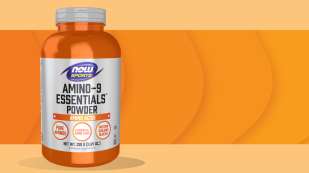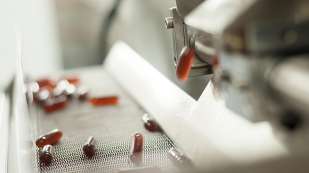Use coupon code CARDAMOM with your purchase of $40 or more for a free†
Cardamom OilDr. Will Cole Functional Medicine Q&A

Dr. Will Cole answers some of the top functional medicine questions he is often asked by his community, so we thought you’d like to know, too!
1. What is the difference between functional medicine and conventional medicine?
Mainstream medicine is more of a “one-size-fits-all” approach that matches a diagnosis to a pharmaceutical drug. The problem with this medicinal matching game is that it doesn’t take into account bio-individuality. Instead, functional medicine treats symptoms by addressing the underlying cause of the problem, which leads to more profound results. Functional medicine can often run more comprehensive labs to discover the root cause of a person's symptoms and utilizes diet, natural supplements, and lifestyle changes to achieve long-term, sustainable healing.
2. Is fasting bad for women?
When it comes to intermittent fasting (IF), women are usually more sensitive than men. This is due to the fact that women have more kisspeptin, which creates greater sensitivity to fasting. If not done properly, IF can cause women to mess up their cycle and throw off their hormones. While more research needs to be done it would make sense to logically conclude that this hormonal shift could affect metabolism and fertility too.
Now all this is to say since every person is different, this doesn’t mean you can never try intermittent fasting. You may just have to go at it with a different approach. Crescendo fasting can be a great way to gradually introduce fasting into your routine.
- Fast two nonconsecutive days a week (such as Sunday and Thursday).
- Only do light exercise on fasting days.
- Fast between 12 to 16 hours.
- After a minimum of two weeks add one more day of fasting to your routine.
- During this time – and especially when combining IF and fasting – I recommend adding around 6 grams of branched-chain amino-acid supplements (BCAAs), which come in powder and capsule form. Your body doesn’t make these essential amino acids, but you can typically get enough through a balanced diet. However, when IF, your body isn’t likely to replenish them as quickly, so supplementing can help, while also serving as the fuel for your workout.*
3. Everyone seems to be doing keto - is it actually healthy or just another fad diet?
Reaching ketosis - where your body relies on ketones from fat as fuel instead of glucose from carbs - has been shown to have some amazing health benefits including restored energy, enhanced brain health, stabilized blood sugar, and weight loss. However, everyone's health case is different, so what works for one person won't always work for the next.
A traditional ketogenic diet also relies heavily on conventional dairy and meat for its protein and fat content which can be food sensitivities for a lot of people. Also, some people require more carbs than others such as athletes or women around their cycle. It's important to determine what works best for you. Whether that is implementing carb cycling or doing a more plant-based approach like my plan Ketotarian - a plant-based ketogenic diet - there are ways to make keto work for you. Ultimately, the best diet is the one that makes you feel better. Remove the diet dogma and replace it with grace. Take the time to find what works for you.
4. How can I start healing my gut and how long will it take?
Bringing in healing tools like bone broth and supplements like NOW® Sports L-Glutamine are a great place to start as glutamine acts as the primary fuel source for the cells in the GI tract but can quickly become depleted*.
What you eat on a daily basis also plays a huge role in the status of your gut health. An elimination diet is my gold standard for uncovering hidden food intolerances. In order to heal your gut, you need to stop eating foods that continue to damage your gut, but you can’t know what foods are irritating to your individual gut until you remove all potential irritants for a certain amount of time and then reintroduce them to discover what foods are truly messing with your gut in the first place.
Depending on the severity of your issues, healing times can vary. For those with only minor gut dysfunction, healing a not-so-perfect gut can take anywhere from two to 12 weeks. However, for those with more severe gut dysfunction, such as leaky gut syndrome or an autoimmune condition, healing can take anywhere between 12 and 24 months before long-term healing is achieved.
5. What is autoimmunity and how do I know if my symptoms are related to an autoimmune condition?
To be diagnosed with most autoimmune diseases, the immune system has to destroy a significant amount of tissue (such as in the brain, gut, or thyroid) to be officially diagnosed. For example, there has to be 90 percent destruction of the adrenal glands to be diagnosed with Addison’s disease. But let’s think about this for a minute – these diseases do not happen overnight. The truth is that diagnosis happens at the end stage of these conditions. This is why I look at autoimmunity as a spectrum.
- Silent Autoimmunity: There are positive antibody labs but no noticeable symptoms. Your doctor will likely tell you that you are probably fine, or to come back next year and re-test.
- Autoimmune Reactivity: There are positive antibody labs and symptoms, but still not enough to warrant a formal diagnosis.
- Autoimmune Disease: There’s enough body destruction to be diagnosed. Some early symptoms of autoimmunity include achy muscles and joints and fatigue. However, depending on your individual health case brain fog, anxiety, depression, and gut problems like chronic constipation and bloating can also be signs. If you suspect autoimmunity might be an issue, seek out a practitioner who can work with you and run labs.
*This statement has not been evaluated by the Food and Drug Administration. This product is not intended to diagnose, treat, cure or prevent any disease.











